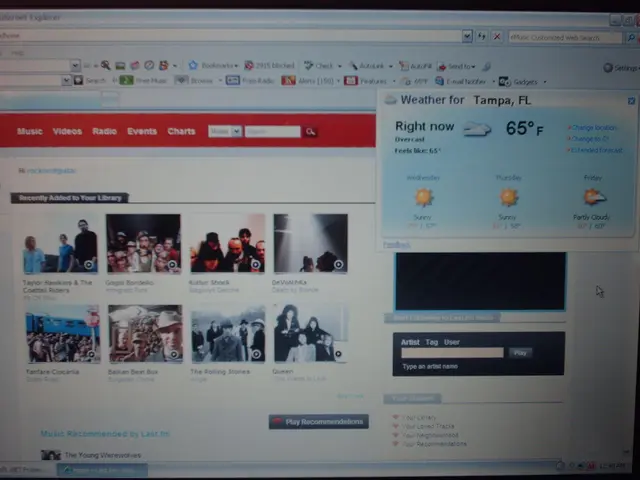Mastering Language Exchange through Social Media Groups: Tips and Strategies
Social media has transformed the way we connect, educate ourselves, and engage with others globally, transcending cultural boundaries and languages. For language learners, these platforms serve as a dynamic, real-world educational setting that fosters practice and improvement. Among the numerous options available, social media groups offer a unique opportunity for collaborative and interactive learning. These groups are typically language-specific and cater to individuals seeking to enhance their linguistic skills through peer interaction.
Navigating these digital spaces effectively can significantly boost a learner's progress. Traditional language learning methods, such as classrooms and textbooks, may lack the flexibility, diversity, and immediacy provided by social media. People are increasingly resorting to these groups to supplement their language skills due to their accessibility, variety, and engaging interactions. Success lies in conscious and thoughtful participation to maximize benefits.
When choosing a social media group, consider the specific language of interest. It is essential to join groups dedicated exclusively to the target language, ensuring the content is relevant to learning objectives. Select groups that are active, with numerous posts and discussions, as they offer more opportunities for interaction and practice. Analyze the group size, with larger groups boasting more resources and diverse interactions, and smaller groups providing more personalized attention. Additionally, familiarize yourself with the group rules and culture, as some may focus on formal grammar and vocabulary exercises, while others may encourage casual conversation practice with native speakers. Joining a group that aligns with one's learning style and goals will ensure greater enjoyment and success.
Active participation is crucial once you've joined the right group. Observe group dynamics and learn what content generates the most engagement, then begin by liking and commenting on others' posts. This helps individuals become acquainted with group members and the culture. Engage in discussions actively and assertively, and don't shy away from expressing opinions, questions, or experiences. This interaction develops conversational skills and boosts self-confidence. Sharing posts related to language tips, interesting articles, or cultural insights associated with the language enriches the group's content while aiding one's practice.
Social media groups offer an excellent platform to refine writing skills in a new language. Practice by posting messages, comments, and writing responses. Solicit feedback from native speakers to identify errors and improve usage and fluency. Join group challenges or exercises if available, as they stimulate creative thinking, force practical application, and help build familiarity with grammar rules and vocabulary usage.
For speaking skills, social media groups provide opportunities to practice through voice chats, video calls, or audio message challenges. Volunteer to organize speaking sessions, or, if these don't exist, initiate conversations with like-minded members via direct messages. Engage with live videos, webinars, or podcasts shared within the group that invite comments or questions. These interactive experiences encourage rapid thinking and active responses, and they help develop listening and speaking skills simultaneously.
Social media platforms are equipped with features that can further language practice. Use translation tools sparingly, as they can lead to overreliance that may hinder language learning. Instead, work to understand posts naturally, using translations only as a last resort. Build a personalized vocabulary list from words and phrases encountered within the group, and utilize platform-specific tools, such as pinned posts or saved content, to organize learning materials efficiently.
Effective use of notifications ensures timely access to new posts, discussions, and group events valuable for practice. Some platforms offer language learning integrations or apps, which can be used concurrently with group activities to apply newly acquired vocabulary or grammatical structures in discussions. Leveraging these features increases the learning experience and transforms every interaction into a learning opportunity.
Building relationships within these communities enhances the language learning experience, offering personalized guidance, encouragement, and support. Networking fosters a deeper cultural exchange, enriching the learning process. Establish connections by reaching out and proposing mutual language exchange partnerships. These relationships can lead to travel opportunities, pen pals for extended practice, and a broader understanding of cultural nuances that influence language use.
Part of mastering a language involves understanding the associated culture. Social media groups are a great source of cultural insights, news, and native speaker experiences that heighten cultural awareness. Participate in discussions about cultural differences, traditional holidays, local cuisine, and media in countries where the language is prevalent. This exposure deepens comprehension and contextualizes language use, making it feel more natural and authentic.
Becoming proficient in a new language requires a long-term commitment rather than sporadic participation. Consistency in active engagement, practice, and interaction is vital for continuous improvement. Set realistic goals and periodically evaluate one's progress to keep motivation high and adjustments as necessary. Consecutive active participation will ultimately yield noticeable improvements in competence and confidence levels.
In conclusion, social media groups have become indispensable assets for language learners worldwide. By choosing the right groups, actively engaging with community members, and utilizing available tools and technologies, learners can effectively practice and improve their language skills. Building relationships within these communities not only facilitates language acquisition but also fosters cultural understanding, making the learning experience enriching and comprehensive.
Whether a beginner or an advanced learner, social media groups provide an inclusive and engaging environment. Leverage these digital resources effectively, challenge yourself regularly, and embrace each interaction as a step closer to linguistic mastery.
- Social media groups, being language-specific, offer education-and-self-development opportunities by fostering collaborative learning and real-world practice, thus supplementing traditional language learning methods that may lack flexibility and immediacy.
- Technology, in the form of social media platforms, has revolutionized entertainment by providing interactive experiences that encourage rapid thinking and active responses, aiding in the development of both listening and speaking skills, thereby enhancing the overall lifestyle experience for language learners.








